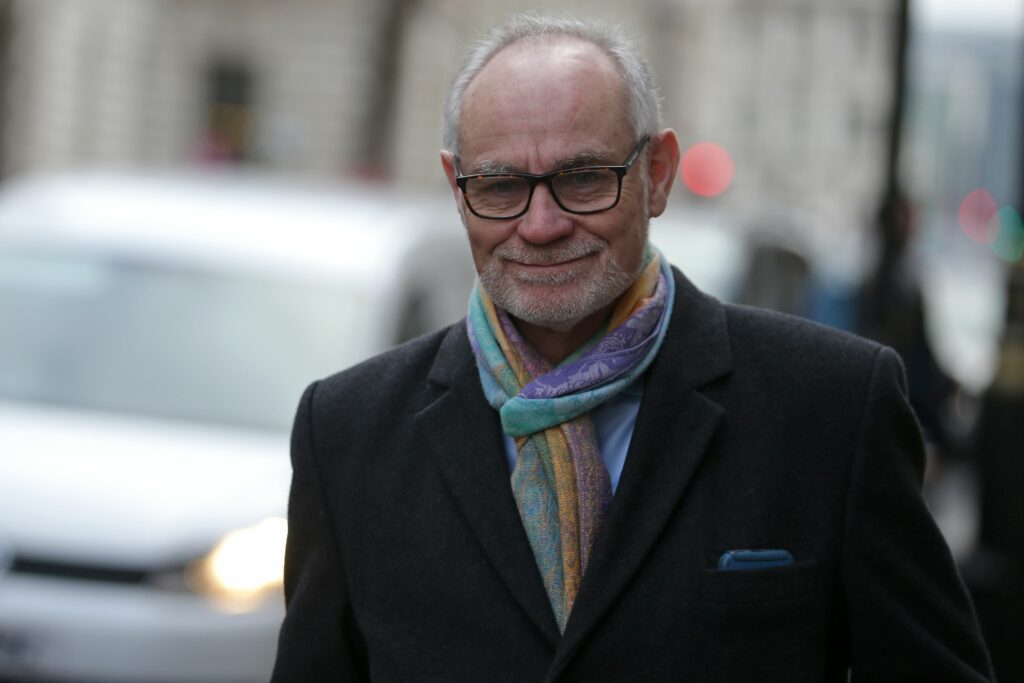No, Boris Johnson, banning conversion therapy isn’t ‘complex’. It’s simply common sense

Britain’s premier Boris Johnson has faced criticism for his sluggish approach to banning conversion therapy. (TOLGA AKMEN/AFP via Getty Images)
Legal experts, human rights campaigners and British lawmakers have explained how the government can actually ban torturous conversion therapy – and fast.
Last week, the ruling Conservative Party fielded fire from all sides after it delayed a planned public consultation into banning the discrediting practice.
The government’s sluggish approach to putting a stop to conversion therapy, also known as reparative therapy, has simmered since Theresa May’s government first promised to outlaw the practice in 2018.
Years since, no timeline has been given or any details on what the proposed ban will shape up like, prompting the government’s LGBT advisory group to resign. The government then disbanded it entirely as prime minister Boris Johnson said the ban will take time as it is “technically complex”.
Not quite, senior human rights experts, academics and parliamentarians have countered in a report that slams the “degrading and inhuman” conversion therapy and the government for not acting quickly enough.
The Cooper Report, named after the late towering activist, human rights lawyer and conversion therapy campaigner Jonathan Cooper, recommends a “two-pronged” approach to barring the practice that wields both criminal and civil law.
“We see criminalisation as essential when dealing with human rights abuses, as this draws a clear line as to what acts will and will not be tolerated in a civilised society,” said Baroness Helena Kennedy QC in a statement to PinkNews.
Those most at risk to conversion therapy, such as queer youth or vulnerable adults, will be shielded, ensuring that “perpetrators are left in no doubt that if they continue their harmful practices, they will face the full force of the law”.
Conversion therapy has long brought up violent images of institutionalisation, castration and electroshock therapy.
But the practice today is more silent, the contributors warn, and is often more therapeutic and occurs in religious or cultural settings, rather than just medical ones.
Many bans, especially in the US, tend to tackle those carried out by licensed health care professionals and practiced on minors. This tends to leave a gap for religious or spiritual providers to suppress people’s sexuality and gender identity without fear.
But by making the definition broad, the report states, the ban will ensure no form of conversion therapy can slip through the cracks, such as “prayers” that aim to suppress a person’s identity. People being abducted and being forced to undergo treatment must also be considered, it added.
The report, which was commissioned in July by conversion therapy survivor and a former LGBT advisor to the government Jayne Ozanne, has been signed by bosses at Stonewall, Mermaids as well as MPs from all sides of the aisle.
Among them is Conservative lawmaker Crispin Blunt. When asked why conversion therapy should be banned in Britain today, the Reigate MP simply replied to PinkNews: “Do we still need to ask that question?”
“I am who I am,” the chair of the All Party Parliamentary Group on Global LGBT+ Rights said, “I don’t need to be changed. That is how people are and they don’t need to be fixed.”

Conservative MP Crispin Blunt. (DANIEL LEAL-OLIVAS/AFP via Getty Images)
For Blunt, the idea of outlawing a harmful, debunked practice is common sense. How it is the “establishment view” shows how much “we rejoice in people’s diversity, and we don’t see it as a threat”.
“We recognise it, respect it and are finally coming to celebrate it,” he said.
That is why the government must ban conversion therapy – and fast.
“The sooner this is done, the better,” Blunt argued. “The sooner a signal is sent to where the UK stands on it.
“This kind of behaviour is not acceptable and not legal,” he said, adding that the government must ensure that the “appalling and unnecessary” conversion therapy inflicted on trans people must also be considered.
“They need to be protected to make sure people who are trying to suppress people’s true identities are exposed and open to the law.”

